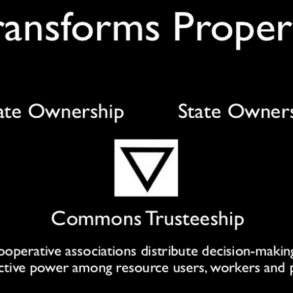By Jon Freeman for Enlivening Edge Magazine
What are you worth? What is anything worth – and who decides?
In name, we live in a capitalist system. As this article and the plot of this series unfold, we will discover that this is not so, but for now, let’s go with the assumption.
At root, the answers to those questions is simple and well-known. The value of a good or service depends on two things – supply and demand. How easy is the thing to obtain and how many people want it? Low availability and high  demand drives the value (price) up. High availability and low demand drives it down. So in theory, value is determined collectively. We may not collaborate, and we vote with our wallets, not ballots, but when left alone, the system is essentially democratic.
demand drives the value (price) up. High availability and low demand drives it down. So in theory, value is determined collectively. We may not collaborate, and we vote with our wallets, not ballots, but when left alone, the system is essentially democratic.
I have written a book. What is that worth? As its creator, I think it is worth £50 per copy. I should be earning what Daniel Craig gets paid for a film – it probably takes about as many hours and equivalent preparation and skill. I might think that amount would be fair, but I know it isn’t going to happen. More people will watch “Spectre.” There are other books about money. James Bond has brand value and I don’t – at least not yet. On Kindle, the book is £3.99 because there is a reasonable chance people will pay that.
How wise are we?
In 1906 at a country fair, 800 people participated in a contest to estimate the weight of a slaughtered and dressed ox. Individual estimations varied widely, but statistician Francis Galton, a half-cousin of Charles Darwin, observed that the median guess, 1207 pounds, was accurate to within 1% of the true weight of 1198 pounds. This is the wisdom of crowds; we are smarter collectively than we are alone, it seems.
This, essentially, defines free-market economics. The system assumes that the collective has the right to determine what my book, or my time, or any other commodity is worth. Steve Jobs was worth gazillions because his creations were more widely desired than mine. I have to live with that. That is how our society determines what is fair. We elect our governments on the same basis.
You might feel that your government provides cause to doubt collective wisdom. You may see people paying money for worthless tat. (Christmas is in the frame as I write this). Galton’s observation seems not to apply. It doesn’t even come close.
Estimating the weight of an ox is values-neutral. You might care whether you are right or wrong, but you don’t desire the ox to be lighter or heavier than it is. When it comes to money, what it is and how we use it, that is no longer the case, and the primary reason for this is very obvious. We are emotional creatures. Our politicians play on our feelings – they encourage us to fear that another party will damage us economically or that immigration will make us unsafe. Marketers and advertisers are highly skilled at making us acquisitive, playing on our weaknesses, our greed, our fear that we might be left out or left behind. Our wisdom is subverted.
Individually, our decision-making is driven by our emotions. However much you like to think of yourself as balanced and rational, decades of social psychology experiments show how vulnerable we are to distortions. There is an evidence base documenting how we make our decisions first and rationalise them after. Even without that, a little honest self-reflection tells you how your emotions work when faced with chocolate, that wizard little technical gizmo, the attractive car or the attractive girl/guy. If we are lucky and/or self-disciplined, our wisdom may increase over time.
The errors in Galton’s crowd were averaged out. In most situations the emotional influences cause us to be as collectively misguided as we are individually, because most of us are subject to the same weaknesses. We are influenced by  the same culture and information channels, affected by our peer groups and our families. The individual distortions to our thinking have corresponding collective outcomes.
the same culture and information channels, affected by our peer groups and our families. The individual distortions to our thinking have corresponding collective outcomes.
Values and Value
A familiarity with Spiral Dynamics and Integral Values systems would tell you that all of the above also changes with stage of development. RED is impulsive, our inner 3-year old, driven towards instant gratification – and doesn’t mind borrowing to have it. BLUE/AMBER is a little more grown up and has grasped that deferred gratification may benefit us, and that saving up is a good idea. BLUE/AMBER also knows that there are rules about fairness to others. AMBER can wait longer or work harder for better outcomes. Sometimes. Our ORANGE internal strategist will look to maximise the benefits. ORANGE is self-expressive, but with some regard not to anger others too much. GREEN takes more account of caring, sharing, and fairness, and wants us all to feel good.
These dynamics all play out in the Values that we might claim to hold. I may see your orderly rules as the constraint to my inventiveness and creativity. You may see my care for others as a demand on your income that limits your freedom to consume. For every person who wants to see their money spent on education and health care, there is another who wants to decide for themselves, asserting their right to a better house, a private school for their children, or a yacht.
Because of this, Values systems feed into Value. The more people want better houses, the more the price of houses will rise. The free-market system which sits beneath capitalism would in theory take account of this. It would lead to increased house-building that satisfies demand. The more people want to give priority to elder care, or health, or education the more of these services would be provided. What could possibly go wrong?
Is something wrong with the system?
We know that something is wrong. Is it something wrong with people, or with the system? I suggest that the answers are yes and yes. And also no and no.
We must deal with history, circularity, and complexity.
The circularity begins in the fact that our systems have arisen based on the values at the time in history each system’s features were developed. The RED system created land ownership, aristocracies, and historical fiefdoms based on who could grab the most and hold it. BLUE/AMBER embedded ownership in law (whether private or state) and drove accounting rules. ORANGE expanded notions of corporate ownership; those who invest in companies are not merely the suppliers of money, they are owners with priority rights to determine corporate governance. BLUE/AMBER and GREEN are both embedded in our systems of government. BLUE taxes support the state to meet our collective requirements such as defence against RED predation and the benefits of schooling obedient young people for the factories, and subsequently educating the supply of skilled workers for the ORANGE system. GREEN taxes enable the state to care for the less able, the sick, and the elderly.
Each of these Values perspectives is alive and well in Western Democracies. The balances will look different when comparing UK with US, France with Germany but the mechanisms are the same. Even former communist countries with a very different route map based on total state control are now arriving in a similar place.
These forces become circular because they are now our Life Conditions. They are what we live in and they are what our Values are adapted to. The core of our economic existence is still ORANGE. When we decide whether to have no-longer-robust Grandma live with us we do not have a free choice. We cannot all afford to build a Granny annex onto their house. We are affected by her capital, her income (personal pension or state). We balance her needs against our own aspirations and what it means for the children. Whatever our GREEN aspirations or our BLUE/AMBER duties, ORANGE constrains our choices. Is there something wrong with those who don’t give Granny house room? What assumptions are we all entitled to make about who picks up the tab for a care home? Is there something wrong with all of us that we are struggling so much with how to care adequately for society’s elders? These are judgments that you might make and it would be affected greatly by your own Values stage. Hence my yes and no answer.
How we think – or thought – built our systems. The fact that we now recognise elder care to be a problem suggests that the systems themselves might be at fault, though it also reflects a demographic shift. But I repeat my yes and no equivocation because it is not as simple as that. Elder care is one of a hundred examples I might have chosen, all of which affect our lives in varying degrees, asking questions of us and our societies. You may have a drug-dependent relative or a special-needs child. You may be an entrepreneur in business with brilliant and beneficial products or services to offer. You may be the professional carer dealing with the former or a supplier whose business in turn depends upon the latter. It’s complicated and complex. Do you realise that you are not objective? How does the system accommodate all of these dynamics in such a way as to express the value of each element? How does it deal with your biases and mine?
What might TEAL look like?
Since it is a fundamental principle of entry into Second Tier that we have visibility of all the stages, we have to meet the challenge of turning Values into Value.
If our current systems were created from the mind-sets of earlier stages, what kind of system should we be creating now to reflect the new mind-set?
We know, or at least should know, that we have to rise above earlier stage conflicts. ORANGE turned greedy and we blame that on fat-cats and bankers, but many people thought they could prosper by trading up the property ladder. Very few of us are immune, unaffected by fear or material desire. Many of us are equally inclined, even if in smaller ways, to use money for power and control over our existence and sometimes over others. Blaming others is not only a cheap and unproductive response; it is a cop-out. It feeds a victim mentality. The system will not change unless we do.
Nor can we rewrite history. Revolutions are generally destructive and few of them have ever benefited “the people,” particularly in the short term. New RED dominance generally replaces old RED dominance sooner or later. It doesn’t change until the Values systems do. Inequality of land ownership goes back centuries. If your country, like mine, has a monarchy or aristocracy, this reality is built into the entire societal fabric, and even if not, you have the equivalent legacies of your industrial empire-builders, your oil barons, or whomever. We cannot solve present problems by fixing the past, only by creating the future.
So the next stage demands a system which enables us to manage the complexity, open up the constraining circularity and unwind the history. The free market economy has not yet existed. It was prevented from arising by pre-existing power and ownership structures. It has been distorted by cartels and artificial shortages. Governments are caught in the same mythologies as everyone else, and then further influenced, pressured and in some cases bribed into support of the status quo. When they don’t support the status quo, we don’t vote for them. Regulators lag behind the inventors of new monetary schemes. Powerful computers embed and operate manipulative systems. Any wisdom that crowds might possess is buried beneath this mountain of systemic confusion, baggage and corruption. There is no free market and no societal determination of value.
This is not an unsolvable problem, but there is no silver bullet. The simplistic responses are to prosecute (or execute) the privileged, to write “better” laws enforced by greater governmental control or even to smash the system. This only creates new power structures, jobs for lawyers and systems that are even more in the way of a self-organising, self-regulating marketplace. Like it or not, our big cities would collapse without the system, unable to bring in food, incapable of dealing with waste, descending into BEIGE collapse, in which the main survivors would be the RED gangs. We have to grow out of such thinking, and raise ourselves above the level that created the problems.
A comprehensive solution is possible. It means, in Integral terms, an all-quadrant, all-levels design.
We have the knowledge to do this, and many of the required elements are available – from sustainability practices to alternative currency models, to sacred economics and commoning, to new corporate governance systems and revised ownership structures. We have to deal with our internal drivers. We need a direct relationship between money and value. We need an economy based on goods and services, not on speculation, and we don’t need high systemic debt levels.
Visitors to my website, www.reinventingcapitalism.org can view or download my outline list of the 36 proposals that would seed this conversation. Each requires fleshing out into a plan. That will take work. Each quadrant needs to gel internally and all four need to be brought together. But there will be paradoxes and contradictions because there are polarities to manage, not fixed choices to be made. The world is too complex for us to manage in the old cause-and-effect ways. It always has been too complex to manage in those way, but in slower, less globalised times we could maintain the comforting illusion that it was possible. Creating a basis for human economic self-organisation is now an essential, not an option.
 As human numbers have grown and societies have become more complex, our intelligence was embedded into systems and processes. That worked for a while and the systems may still be supportive. But they must not be our masters and they can only embed thinking, whereas we need, just as much, sensing, intuiting, and feeling. Our decision-making has been appropriated by, and/or surrendered upwards to those furthest from the action, the few required to decide too much with too little awareness, for the many. Wisdom has been taken away from, or surrendered by, the crowd.
As human numbers have grown and societies have become more complex, our intelligence was embedded into systems and processes. That worked for a while and the systems may still be supportive. But they must not be our masters and they can only embed thinking, whereas we need, just as much, sensing, intuiting, and feeling. Our decision-making has been appropriated by, and/or surrendered upwards to those furthest from the action, the few required to decide too much with too little awareness, for the many. Wisdom has been taken away from, or surrendered by, the crowd.
Sustainability calls for more direct relationships between people and the things in life that we value. Care requires an ability to respond to what we see and to what the individual asks for. We need fewer intervening layers, not more of them. We need greater empowerment for individual choice because the intelligence and awareness need to be at the locus of daily decisions, in touch with the effects and able to respond to whatever shifts the decisions produce. The crowd needs to be given back its responsibility, to experience the learning curve of sensing more and making its own decisions. Teal money systems can and must enable this as the means of reconnecting Values to value. What this takes and how it affects organisational existence will be the subject of future articles in this series.
Jon Freeman is a strategic thinker and consultant specializing in systemic organizational redesign in support of conscious, values-led and purpose-driven culture change. He is also a Spiral Dynamics trainer and practitioner, and author of Reinventing Capitalism: How we broke money and how we fix it, from inside and out.






> The crowd needs to be given back its responsibility…
When did it have it?
Very thought-provoking article, Jon. Thank you.
Oh, John. How clear your assessment is! I thank you that we are learning the what…but the how is slower to emerge.
Thanks so much for this amazing article, Jon. I am getting ready to release a book on the experience of time and money from a developmental perspective. It’s an early-on conversation for those in business who have little to no awareness of integral or constructive-developmental theory. I wish I had read your book or your articles beforehand as I would loved to have included some of your brilliant quotes in this book. Perhaps I will write a blog at some point where I can point to your work. Look forward to reading the subsequent articles and your book.
Also, so appreciate your passion for the emerging future in the context of money.